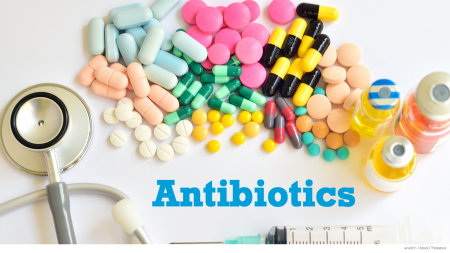New Delhi, 13 May 2025: A recent study has uncovered a potential link between early-life antibiotic exposure and the onset of precocious puberty in girls. Researchers in China conducted a cross-sectional study involving 928 children aged 6 to 12 years, detecting antibiotics in 93% of urine samples. Notably, the presence of tetracyclines and fluoroquinolones was significantly higher in children exhibiting signs of early puberty compared to their peers.
The study found that children with early puberty had higher detection rates of tetracyclines (41.4% vs. 29.9%) and fluoroquinolones (56.8% vs. 50.6%) compared to those with normal pubertal development. After adjusting for variables such as age, sex, BMI, and socioeconomic status, the researchers concluded that exposure to these antibiotics was associated with increased odds of precocious puberty.
Understanding Precocious Puberty and Its Implications
Precocious puberty refers to the onset of secondary sexual characteristics before age 8 in girls and before age 9 in boys. This early development can lead to various health challenges, including reduced adult height, increased risk of hormone-related cancers, and psychological effects such as anxiety and depression.
The study’s findings suggest that antibiotic exposure, particularly to tetracyclines and fluoroquinolones, may be a contributing factor to the early onset of puberty in girls. This association underscores the importance of cautious antibiotic use during infancy and early childhood.
The Role of Gut Microbiota in Hormonal Development
Antibiotics are known to disrupt the gut microbiota, which plays a crucial role in various bodily functions, including hormonal regulation. Alterations in the gut microbiome during critical developmental periods may influence the hypothalamic-pituitary-gonadal axis, potentially leading to early puberty.
The study’s authors hypothesize that the disruption of gut microbiota by antibiotics could interfere with hormonal signaling pathways, thereby accelerating the onset of puberty. Further research is needed to explore this mechanism and its implications fully.
Recommendations for Parents and Healthcare Providers
Given the potential link between early antibiotic exposure and precocious puberty, healthcare providers are encouraged to:
- Prescribe antibiotics judiciously, ensuring they are necessary and appropriate for the condition being treated.
- Educate parents about the potential long-term effects of antibiotic use during infancy.
- Monitor children’s growth and development, being vigilant for signs of early puberty.
Parents can also take proactive steps by:
- Discussing the necessity of antibiotic treatments with healthcare providers.
- Being aware of the signs of early puberty and seeking medical advice if concerns arise.
The association between early-life antibiotic exposure and the onset of precocious puberty in girls highlights the need for careful consideration of antibiotic use during infancy. While antibiotics are essential tools in combating bacterial infections, their potential long-term effects on children’s development warrant cautious application. Ongoing research is crucial to further understand this relationship and to develop guidelines that balance the benefits and risks of antibiotic use in early childhood.






